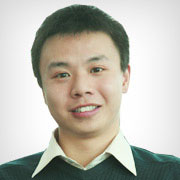2011─Ļ6į┬ėóšZ(y©│)┴∙╝ē(j©¬)┐╝įćĮY(ji©”)╩°����Ż¼┐╝įć░╔š¹└Ē┴∙╝ē(j©¬)ķåūx┘Y┴Ž���Ż¼ų·┤¾╝ęéõæ(zh©żn)Ž┬░ļ─Ļ┐╝įć�ŻĪ
ĪĪĪĪThe Story of Progress and Discovery
ĪĪĪĪYou have probably heard it said that if you put a horsehair in a container of rainwater and place it in the sunshine, a snake will develop. It is hard to convince people even today that this is not true, yet it is not difficult to get a horsehair and some rainwater to try the experiment. Since very early times men have believed that living things could come from non-living things. Some people thought that frogs and toads developed from the mud of ponds, rats from the river Nile, and insects from dew or from rotting waste. Vergil wrote that slime begat(«a(ch©Żn)╔·) frogs. Centuries later, other men wrote that water produced fishes and that mice came from old rags. This notion that living things can come from lifeless matter is known as the theory of "spontaneous generation. " Today we know that living things can come only from living things. Redi, in the seventeenth century, was the first to experiment to prove that insects do not originate from rotting matter. From his experiment, Redi concluded that maggots appear in decaying meat simply because the eggs of flies hatch there, and not from "spontaneous generation".
ĪĪĪĪAt the time of Leeuwenhoek the microscope was not well developed, but with it he discovered bacteria. The study of these tiny forms of life which looked like specks(ąĪ╬█³c(di©Żn)) to him was not practical until more than 150 years later, when microscopes were much improved. However, the discovery led some medical men at the time to think that contagious diseases were due to germs passed from the sick to the well.
ĪĪĪĪDr. Edward Jenner, a young English physician, overheard a milkmaid say that she was not afraid of smallpox because she had just recovered from an attack of cowpox. This gave Jenner the clue, and in 1796 he proved that a person vaccinated with cowpox germs is quite certain to escape from getting smallpox. At this time smallpox was so common that about only one person in a hundred escaped.
ĪĪĪĪIn Aristotle's days, it was the common belief that air caused foods to spoil. People believed that this was true until the seventeenth century. In 180'0, Napoleon offered a prize for the successful invention of a container which would keep foods from spoiling in war times. The prize was won by Francois Appert, who had worked all his life on this problem. He packed foods in glass or china jars, poured in enough water to cover the food, corked and sealed them, then placed the jars in a container of water which was gradually heated to the boiling point. He thought, however, that it was air that caused the foods to spoil. It was not until fifty years later that Louis Pasteur proved that it was not air that spoiled foods, but tiny living organisms that float about in the air. The first tin-can container was made in 1807 by Peter Durand. The canning industry in the United States began in 1819 when salmon, lobster, and oysters were first canned.
ĪĪĪĪThe idea that germs cause disease did not have many followers when it was first suggested. Interest began to be shown again when Bassi, in 1837, showed that a silkworm disease was transmitted to healthy worms by the passing of tiny "glittering particles. " Later, Henle said that "catching" diseases were caused by germs.
ĪĪĪĪAbout 1850, Louis Pasteur began experimenting with tiny living organisms and was able to discover many important things. He proved that yeast plants cause substances to ferment, that bacteria cause milk to sour, and that floating particles in the air contain living germs which cause spoiling and decay.
ĪĪĪĪSoon after Pasteur had announced these discoveries, Joseph Lister proved that wounds were poisoned by germs from the air or from the surgeon's instruments used during operations. He proved that if the instruments were perfectly clean or sterile and if antiseptic (Ę└Ė»ä®) dressings were used on wounds to prevent the entrance of germs, wounds would heal without decay or blood poisoning. The first antiseptic Lister used was carbolic acid(╩»╠┐╦ß). The wards in the Glasgow infirmary of which Lister had charge were especially affected by gangrene (ē─Ū∙). In a short time they became the healthiest of any known, because he applied his knowledge of antiseptics to the healing of wounds. With some improvements, Lister's methods are used today.
ĪĪĪĪŽÓĻP(gu©Īn)═Ų╦]Ż║
ĪĪĪĪ2011─Ļ6į┬ėóšZ(y©│)┴∙╝ē(j©¬)ķåūx└ĒĮŌĖ„Ņ}ą═┤Ņ}╝╝Ū╔
ĪĪĪĪ2011─Ļ6į┬ėóšZ(y©│)┴∙╝ē(j©¬)┐╝įćķåūx┘Y┴ŽģR┐é
ĪĪĪĪ2011─Ļ6į┬┤¾īW(xu©”)ėóšZ(y©│)┴∙╝ē(j©¬)┐╝įćķåūx▒žéõį~ģRģR┐é














